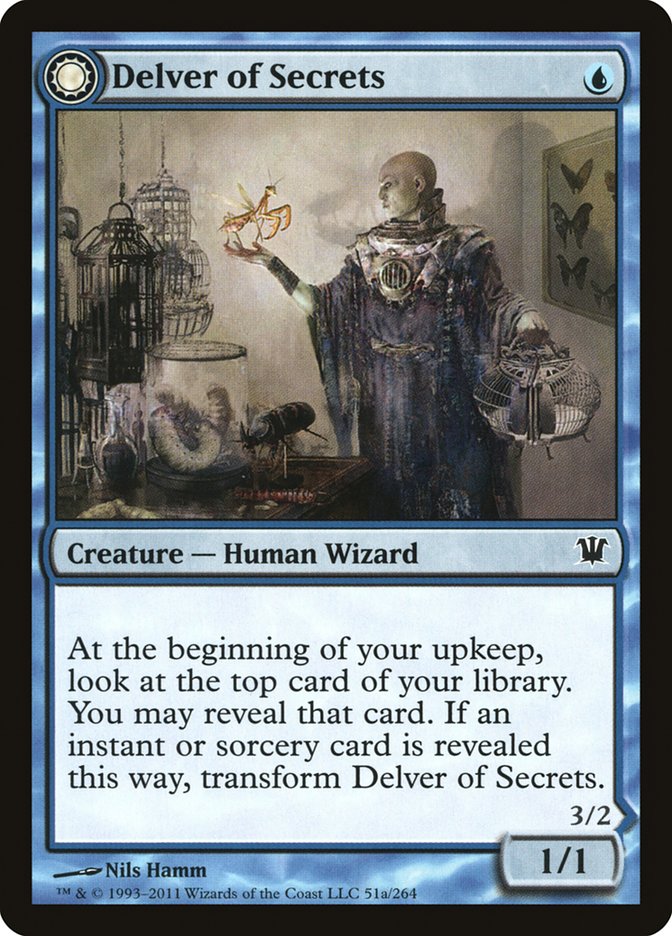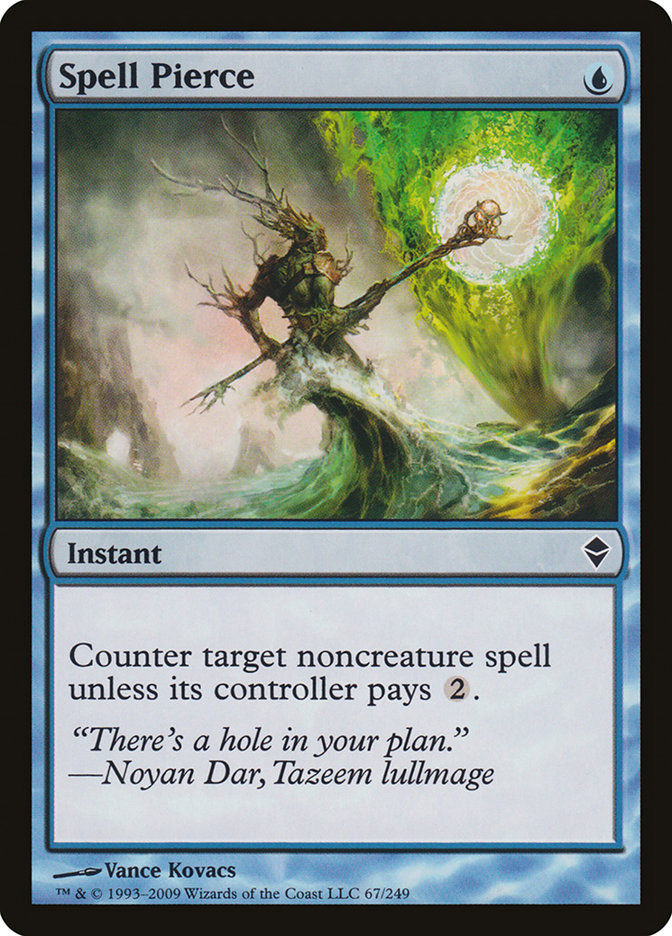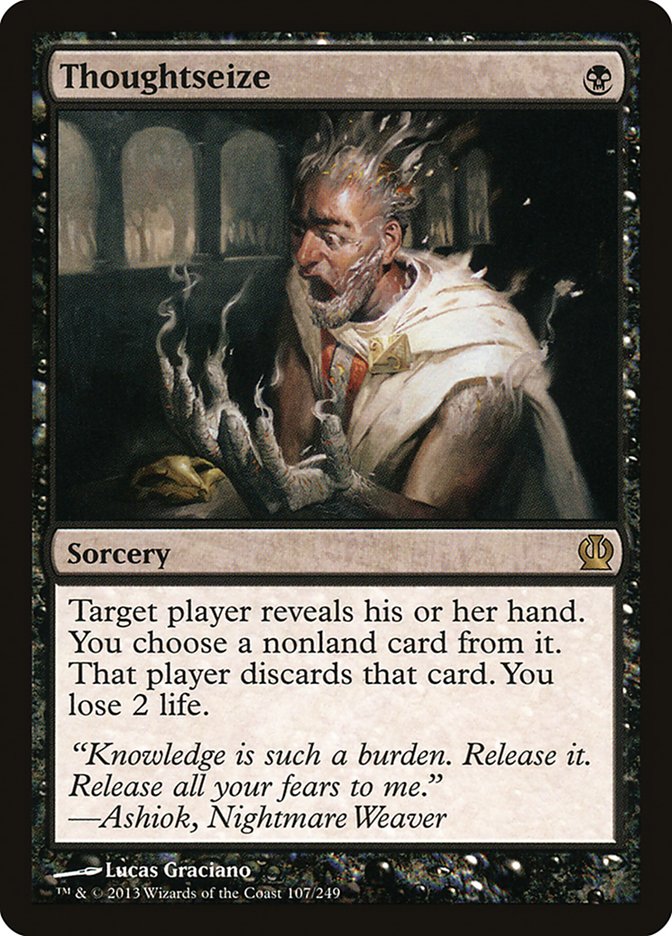Try as we might to live without regret, all of us eventually go through moments that we wish we could relive, moments we know could have gone better. Maybe
you said something stupid and insensitive on a first date with someone you really liked. Maybe you froze on a key question in an interview for a great job.
If you look back, there are always some things that you know got away and leave you wondering: What If?
In my experience, this goes doubly for Magic players, and I am no exception. Magic is an incomparably difficult game where even the best make frequent
mistakes, however slight they may be. As a strategy game, Magic also draws the more analytically minded who are more apt to comb through their past games
and find their mistakes. We are also a lot that enjoys incessantly reminding each other of their past misplays. Combine this with high pressure situations
where time is a factor and you have a perfect recipe for regret.
While it is important to look back and analyze previous games for mistakes so you can improve in the future, dwelling on these moments can be quite toxic.
There is a sinking feeling that you have choked in an important moment and that that quality is innate to your character. Soon the thoughts creep into your
head when another big moment approaches, invariably hindering your play and forming a self-fulfilling prophecy. So while it is important to look back to
recognize your mistakes, it is equally important to let those mistakes go.
To that end, I would like to briefly look at some of the moments in my Magic career that I would like back, and then look at ways that I cope with regret.
That Damn Sulfuric Vortex
We begin at about the 27:15 mark.
To set the stage, this is game 3 of a quarterfinal match of the Legacy Open in Los Angeles in 2012. I was playing my trademark Legacy deck at the time,
Maverick. (I wouldn’t switch to Elves until the next year.) My opponent, esteemed commentator Patrick Sullivan, is, of course, playing Burn.
I have a substantial board including a large Knight of the Reliquary to apply pressure, a Qasali Pridemage to destroy his Sulfuric Vortex, and an
Ethersworn Canonist to help prevent a flurry of burn spells. I am at a healthy thirteen life, and even if I do not kill Patrick on my next turn, my last
card is an Umezawa’s Jitte that will essentially end the game once Pridemage takes care of the Sulfuric Vortex. His only other permanent, a Grim
Lavamancer, has no fuel in the graveyard. At this point I feel I am a near lock to win the game.
And yet somehow I did not untap again.
Had I not tapped my Wasteland to use Qasali Pridemage, I could have used it in response to Price of Progress to destroy my Savannah, thus saving four
damage instead of two, and that two life proved to be the difference between one and negative one. It was everything.
Afterwards I was in shock. I sat at the table forever with my board completely intact, unable to process what had just happened. If you watched
this live you may remember the camera coming back on with Patrick having long packed up his things and me still sitting there scratching my head and
looking at my cards.
The commentators were similarly incredulous that Patrick found a winning line from his position. With some time before the semifinals they actually interviewed Patrick about the game because it
was that astonishing. It was as close to a perfect game of Legacy as I have ever seen.
But what gets me about this game is that everything was in my hands. I had seen Patrick’s list, which you can find here.
At the moment he passes the turn with me at nine life and him with two cards in hand, the only cards he can possibly cast are Lightning Bolt, Fireblast,
Price of Progress, and Searing Blaze. No pair with Searing Blaze gives him a kill. Double Fireblast and Fireblast + Lightning Bolt kill me regardless of my
play. Double Lightning Bolt, Lightning Bolt + Price of Progress, and double Price of Progress fail to kill me regardless of my play.
The only relevant pair of cards he could have had was Fireblast and Price of Progress. I should have been able to figure that out and make the
winning play. And do you want to know why I didn’t? It was not because of anything Patrick did or misinformation he leaked.
I was lazy.
That was my eleventh round of Magic on the day since I had played the semifinals and finals of the Standard Open that morning. I was tired. When Patrick
passed I knew I had his list memorized and could take some time to go through it. Then I thought to myself “#@*! it. What could go wrong? This is probably
right,” and succumbed to my sloth.
2012 was my first year playing heavily on the Open Series, and I was out to make a name for myself. Winning memorable matches against top competition is
absolutely essential for that, and I relish any such matches to this day. But this match felt like the Magic equivalent of getting posterized. Patrick even
had a Clippers shirt on to complete the metaphor! Here I am, some poor kid from Connecticut getting dunked on by the grizzled veteran. It was thoroughly
humiliating, and I left an event where I made back to back top 8s in disgust.
One Point Short
We pick it up at just before the 27-minute mark. This match was from last year’s Players’ Championship. Reid Duke and I played what may have been the most
memorable game of the tournament, with him hanging on at one life for several turns before finally putting me away.
At the point the video begins, I have just had my board swept, and Reid has cast a Dig Through Time with a Jace, the Mind Sculptor in play. Things look
grim. I demonstrate the power of Elves by playing every card from my stocked hand before casting a Natural Order for a Craterhoof Behemoth that falls one
point short of lethal. But here’s the rub: I should have killed him that turn.
At the point I cast the second Green Sun’s Zenith I had both Quirion Rangers in my hand, and had I cast them first I would have generated ten mana–enough
to cast Green Sun’s Zentith for eight, floating a single green mana and finding a Craterhoof Behemoth. At that point I can use Quirion Ranger to untap any
non-Nettle Sentinel Elf and generate three more mana to cast Natural Order for a second, lethal Behemoth.
At the time I did not find that line, thinking I was short on mana for it. Even with my line, I could have held the fetchland back to leave Reid at two
life but giving me a means to kill Jace if he has Supreme Verdict, which he did. Without the Jace finding Reid the cards to keep himself alive, I surely
would have won.
I would take solace in the fact that I found my mistake and could improve moving forward, but Elves is the deck I have the most experience with in my
entire history of playing Magic. There was no relevant interaction from Reid to play around. I was simply tasked with maximizing the abilities of my own
cards and failed. I received much praise for that match even in a loss, but to me, the praise was hard to accept as I knew that I had thrown it away.
Had I won this match, I would have been 2-0 in my second group with only a favorable matchup against Stephen Mann and his Temur Delver deck between me and
the top 4. As much as I view 2012 as my breakthrough on the Open Series, it was 2014 that made me a known entity, and making a deep run in such a stacked
field would have been great for my career.
Instead I was left rooting for Tom Ross to defeat Reid in the last round after I overcame Stephen. But it was not to be, and I was put into an elimination
match against Brian Braun-Duin, which I was never close to winning. Of all the things that went wrong for me to be eliminated that match, that game, that
turn against Reid is what I want back. If I win that game, maybe I end up lifting the trophy at the end of the day.
The Thoughtseize
Join me at 25 minutes. Here, we come to the play that inspired this column. Last weekend at the Legacy Open in Worcester I found myself paired against
Kevin Jones in the last round. The winner would make top 8, while the loser would have to settle for top 16.
Given how close we are on the Season Two leaderboard, this match meant a lot. With a win, I had a chance to close the gap or even eclipse him going into
the Season Two Invitational in Columbus next week. With a loss, Kevin would have a chance to expand his lead.
After losing a relatively routine first game, I established an early lead in game 2. Kevin had taken a mulligan, and my first turn Ponder showed three
excellent cards:
I set my library so I would be able to play the Delver on my next turn, with Spell Pierce up for a potential counter or removal spell. None came, and I
calmly untapped and flipped my Delver with the Thoughtseize, attacked, and cast the discard spell. His attempted Brainstorm in response met my Spell
Pierce, and Kevin revealed the following hand:
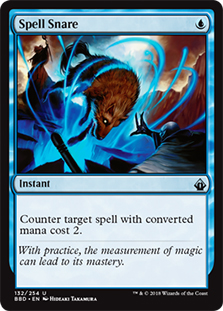
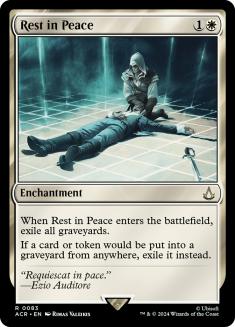
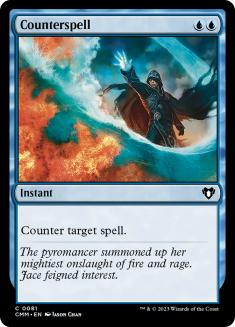
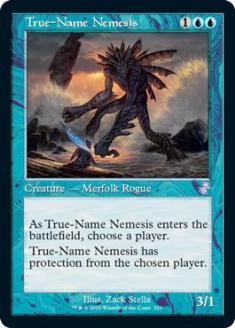
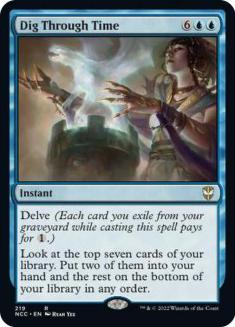

My hand at this point is the following:
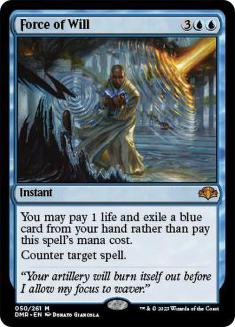

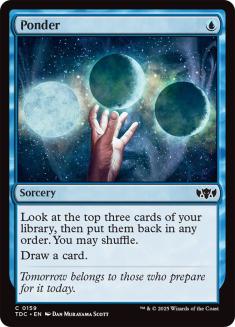
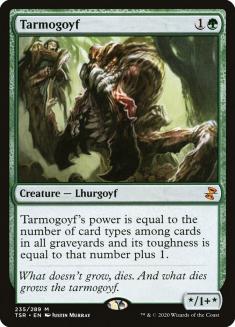

My first instinct was to take the Dig Through Time, as it is the objectively “best” card. Everything else fails to deal with my Insectile Aberration, which
I am relying on to win the game since my Tarmogoyf is effectively blanked by his Spell Snare or Rest in Peace.
However, wanting to be careful, I kept thinking and eventually talked myself into leaving Kevin with the Dig Through Time since he would only have two
cards in his graveyard after the Thoughtseize, with his on board fetchland providing an easy third. With Kevin on only two lands, the Dig Through Time
would not be relevant for at least three turns in my estimation, meaning I could likely do better with my Thoughtseize.
The Counterspell and Spell Snare are both reactive cards and thus lose value in the face of my clock. The True-Name Nemesis loses the race to my Delver
even if Kevin draws land three immediately. I ultimately settled on Rest in Peace so that future Tarmogoyfs and Deathrite Shamans would not be easily
blanked.
Rest in Peace was probably the worst choice in his hand. It shuts down his best card in Dig Through Time and forces him to take down Counterspell and/or
Spell Snare mana for no apparent gain. I should have either taken the Dig Through Time or Counterspell since those are the most likely cards to end up
trading with my Force of Wills, and sure enough that is what each of them did later in the game.
Had Kevin not had either one of those cards, I would have been comfortable casting a Force of Will on his Swords to Plowshares three turns later, and my
Insectile Abberation would have taken the game. I doubt Kevin would have ever even cast the Rest in Peace, instead discarding it to Liliana of the Veil.
I have been telling people for weeks that I am not particularly concerned about winning a season to qualify for this year’s Players’ Championship, and that
is true, as I am in great shape to take an at-large spot as I did last year. Still, this match stung. This season had the most compelling race since the
leaderboard’s inception, so there is some value to winning that race outside of the Players’ Championship slot. We may be friends at the end of the day,
but at the table we are all rivals, and there is nothing worse than losing bragging rights to your friends.
Moving On
So far all I have taught you is that I am not very good at Magic. But in my mistakes there are some important lessons on how to deal with the inevitable
punts that come along with playing a difficult game in pressurized situations. While it is important to look back and analyze your mistakes in order to
improve, you have to do so with some perspective. Most importantly, do not let the frequent “What Ifs” consume you.
The point of looking back at your play is to improve it in the future, not to dwell on missed opportunities. What you learn from your analysis should
absolutely inform future decisions, but it should end there. When you find yourself holding a creature back because you previously were punished by a
greedy attack or mulliganing a hand solely because you mistakenly kept a similar hand in the past, you are doing yourself a disservice.
Each decision you make should be made in its own context and evaluated on its own merit. Many in-game plays, mulligan decisions, and sideboard plans change
based on your opponent’s archetype, specific list, or playstyle. They can also change based on the time left in the round, your status in the tournament,
or a multitude of other tiny factors. Let the past guide your present, not define it.
The other way I cope with inevitable mistakes is to remind myself of the many times I have been incredibly lucky. Prior to my match with Kevin in
Worcester, I was able to win on a mulligan to four by having a Disfigure for my opponent’s Deathrite Shaman and a Wasteland for their only mana-producing
land. In the Players’ Championship, I faded several draw steps to beat Tom Ross on day two and had a turn two kill against Stephen Mann. In Los Angeles, I
drew an excellent hand in my win-and-in for Top 8, curving a Knight of the Reliquary into a backbreaking Armageddon against a Sultai Control deck.
If you look back, you will notice that invariably you got lucky in some key moments to even get to the spot where you punted. So no, the universe is not
out to get you. Sometimes things just do not go your way. There is always next week. Better get to work.

